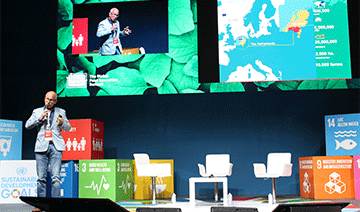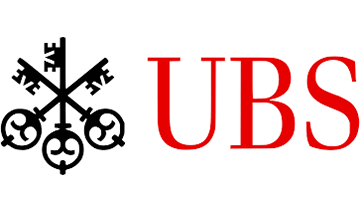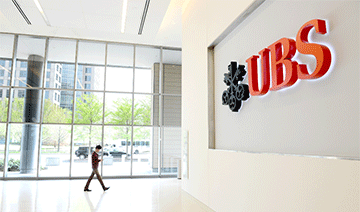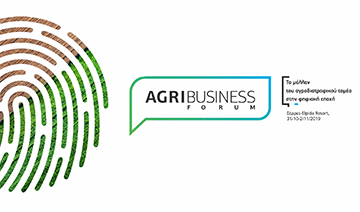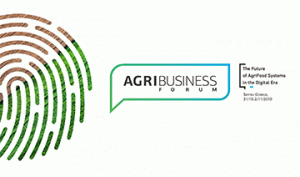Wealthy investors are cautious on 2020 but optimistic on the decade ahead, UBS Investor Watch survey finds. More than 80% of respondents are interested in aligning their portfolios with long-term mega-trends.
High net worth individuals globally have a guarded outlook for next year but are upbeat on prospects for the 2020s, UBS Global Wealth Management’s new Investor Watch survey shows.
According to the survey, which polled more than 3,400 wealthy investors in 13 markets, 79% of respondents said markets are moving towards a period of higher volatility. Seventy-two percent characterized the investment environment as more challenging than five years ago. Sixty-six percent said markets are driven more by geopolitics than by fundamentals. The US-China trade conflict attracted the most concern, on 44% of respondents, with domestic politics on 41% and the US election in 2020 on 37%.
Overall, wealthy investors still hold 25% of their portfolios in cash, far higher than UBS’s recommendations, with 60% saying they would consider increasing that level further.
However, despite their reservations on 2020, 69% of respondents said they were still optimistic on investment returns over the decade ahead. Eighty-eight percent expressed interest in aligning their portfolios with anticipated investment mega-trends – in line with UBS’s thematic Longer-Term Investment offering. The aging population was most often identified as a mega-trend, by 87% of respondents. Eighty-two percent also expressed interest in sustainable investing and 45% said they already held sustainable investments.
This positive attitude towards longer-term and sustainable investing was most in evidence among young and millennial investors aged 18-34. Eighty-four percent said they were highly interested in aligning their portfolios with mega-trends and 83% expressed interest in sustainable investing, compared with 30% of those aged 51 or older in both instances.
Paula Polito, Client Strategy Officer at UBS Global Wealth Management, says: “The rapidly changing geopolitical environment is the biggest concern for investors around the world. They see global inter-connectivity and reverberations of change impacting their portfolios more than traditional business fundamentals, a marked change from the past.”
USA
Of the top concerns they face in 2020, a lower proportion of US investors plan to or would consider discussing the presidential election’s impact with an advisor than in any other major region, at 78% versus a global average of 82%. However, a greater proportion (45%) expressed concern about a US-China trade conflict than the average globally (44%) or indeed in mainland China (30%). On a longer-term View, US investors were also least likely to be interested in aligning their portfolios with mega-trends (82%) or in sustainable investing (70%), relative to the other major regions (LatAm, Asia, and Europe, Middle East, and Africa).
Latin America
Investors in LatAm were both more cautious in the near term and more optimistic on longer-term trends than in any other major region. Eighty-one percent saw markets moving toward a period of higher volatility, and 64% were concerned about the US-China trade conflict. Yet, 83% were optimistic about returns over the decade ahead, 97% wanted to align their portfolios with anticipated trends, 96% were interested in sustainable investing, and 69% already held sustainable investments.
Europe, Middle East, and Africa (EMEA)
Investors in the region ranked in the middle of the pack, both in terms of their caution on 2020 and their interest in aligning with longer-term trends. However, a greater proportion expressed optimism on returns over the decade ahead (72% versus a 69% global average). Also 88% expressed interest in sustainable investing (versus an 82% average) and 50% already hold sustainable investments (versus a 45% average).
Switzerland
Swiss investors expressed optimism on the longer-term outlook but more cautiously than in most of the major regions. Eighty-four percent said markets are moving towards higher volatility, while 46% expressed concern over the US-China trade conflict, both higher than the EMEA average. And 67% were optimistic on returns over the next 10 years, with 85% wishing to align portfolios with anticipated trends – high readings but more reserved than the averages for the rest of EMEA.
Asia
Asian investors were less concerned about shorter-term market dynamics but also less unguardedly optimistic on the decade ahead than other geography surveyed. Seventy-six percent of respondents saw markets moving toward higher volatility and 40% were concerned about US-China trade tensions, both the lowest of any major region. However, 65% were optimistic about long-term returns – also the lowest – although 91% still wanted to align their portfolios with long-term trends. Interest in sustainable investing was also high, at 86% of respondents, with 55% already holding sustainable investments in their portfolios.
About the UBS Investor Watch survey
UBS Global Wealth Management surveyed more than 3,400 investors with a minimum net worth of USD 1 million across 13 markets: Brazil, China, Germany, Hong Kong, Italy, Japan, Mexico, Singapore, Switzerland, Taiwan, UAE, UK and US. The survey was conducted between August and October 2019.
Zurich, 12 November 2019
UBS Group AG and UBS AG
www.ubs.com/media


